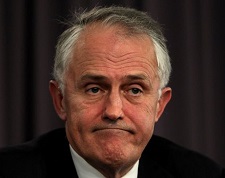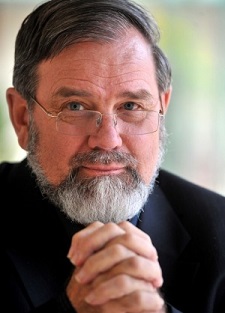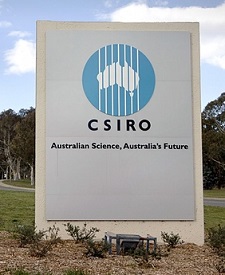 The US Supreme Court has just given the finger to the EPA’s Clean Power Plan, with implications for US democracy as well as the planet. Continue reading US climate action, and democracy, at a tipping point
The US Supreme Court has just given the finger to the EPA’s Clean Power Plan, with implications for US democracy as well as the planet. Continue reading US climate action, and democracy, at a tipping point
Monthly Archives: February 2016
Saturday salon 13/2
1. Garbage out, garbage in
Stuart Robert had to go. Ben Eltham goes through the detail and finds his defence “is somewhere between threadbare and farcical.” So Malcolm told him to resign, and he did.
So with Mal Brough and Jamie Briggs in the naughty corner, plus Warren Truss and Andrew Robb giving the game away, we now have five vacancies. Continue reading Saturday salon 13/2
Poll stuff: New Hampshire edition
New Hampshire told the political establishment they need to change or die.
American voters are grumpy, even angry with the politics that has been served up to them in recent years. Trump and Sanders prospered over the rest, who are seen as representing politics as they know it. Here are the results: Continue reading Poll stuff: New Hampshire edition
Free trade or economic integration?
Last Thursday Andrew Robb and 11 other trade ministers signed the Trans-Pacific Partnership (TPP) trade agreement, rejecting calls for an independent cost-benefit analysis after the World Bank estimated it could lift Australia’s economic output by just 0.7% by 2030.
You see, everyone knows that free trade is good for us, Labor agrees, it’s just the ignorant Greens, trade unions, green groups and lefty outfits like Getup that disagree.
Actually, as recorded in the AFR, the studies are all over the place. Continue reading Free trade or economic integration?
Turnbull: old policies immovable?
 When Malcolm Turnbull was Minister for Communication he was often refreshingly honest about LNP policies he didn’t agree with, leading to an expectation that when he became PM policies would be modified. Now that politics is alive again after the summer torpor, several well-known commentators have taken a look at what the change to Turnbull means. Continue reading Turnbull: old policies immovable?
When Malcolm Turnbull was Minister for Communication he was often refreshingly honest about LNP policies he didn’t agree with, leading to an expectation that when he became PM policies would be modified. Now that politics is alive again after the summer torpor, several well-known commentators have taken a look at what the change to Turnbull means. Continue reading Turnbull: old policies immovable?
Saturday salon 6/2
1. Looking forward to a good year for the economy
There’s been a fair bit of economic gloom lately, not shared by respected economics commentator Ross Gittins. When he got his knees back under his desk (look for the January 29 entry) he declared our economic prospects to be in pretty good shape. He reckons if you think you can learn anything from the nightly news, you’re a fool. Media organisations look for new ways of making us feel bad. Continue reading Saturday salon 6/2
Stunning stupidity at the CSIRO
Dr Larry Marshall, former venture capitalist and now head of the CSIRO, has a brief and a vision to turn the organisation into an innovation catalyst. Climate science simply no longer fits, according to him.
He told the ABC:
- The issue for us in all of our business units is we have to be aware of changes in global markets.
So if you look at the climate market, I think after Paris the argument for climate change is pretty much decided, I think that question has been answered.
So that begs the next question, what do we do about climate change? How do we adapt to it? How do we mitigate it?
And it’s inevitable that people who are gifted at you know measuring and modelling climate may not be the same people who are gifted at figuring out what to do about it, or how to mitigate it.
Vale Bob Carter
 Bob Carter, known to many Australian geoscientists as a former professor and head of the School of Earth Sciences at James Cook University, died on 19 January at age 74. For most of his life he was known to geologists for his work in marine stratigraphy. In recent years he was known to just about everyone for his views on climate change. Here’s what the Australian Institute of Geoscientists said about his scientific contribution: Continue reading Vale Bob Carter
Bob Carter, known to many Australian geoscientists as a former professor and head of the School of Earth Sciences at James Cook University, died on 19 January at age 74. For most of his life he was known to geologists for his work in marine stratigraphy. In recent years he was known to just about everyone for his views on climate change. Here’s what the Australian Institute of Geoscientists said about his scientific contribution: Continue reading Vale Bob Carter
Poll stuff 2/2
Newspoll came out 53-47 in favour of the LNP, so support for Turnbull looks solid and enduring. Bill Shorten’s personal ratings were a smidgeon better but still disastrous at 57 points behind Turnbull. To make matters worse, internal ALP polling on Bill has been leaked. Continue reading Poll stuff 2/2
Climate clippings 162
1. China putting the brakes on coal
China exponentially increased its use of coal in the early part of this century, so that 64% of its energy comes from coal. Now studies suggest that coal use in China declined in 2014 and may have peaked in 2013. No new mines will be approved in the next three years. Continue reading Climate clippings 162
The end of economic growth?
There is a new economic blockbuster out, The Rise and Fall of American Growth: The U.S. Standard of Living since the Civil War by Robert J. Gordon. In brief, his thesis is that 1870 to 1970 was a ‘special century’ of technological change yielding dynamic economic growth that transformed our lives. By contrast in America, nothing much has changed since then, growth has tapered right off and there is little prospect of significant change.
Is he right? Paul Krugman says, “My answer is a definite maybe.” Continue reading The end of economic growth?





